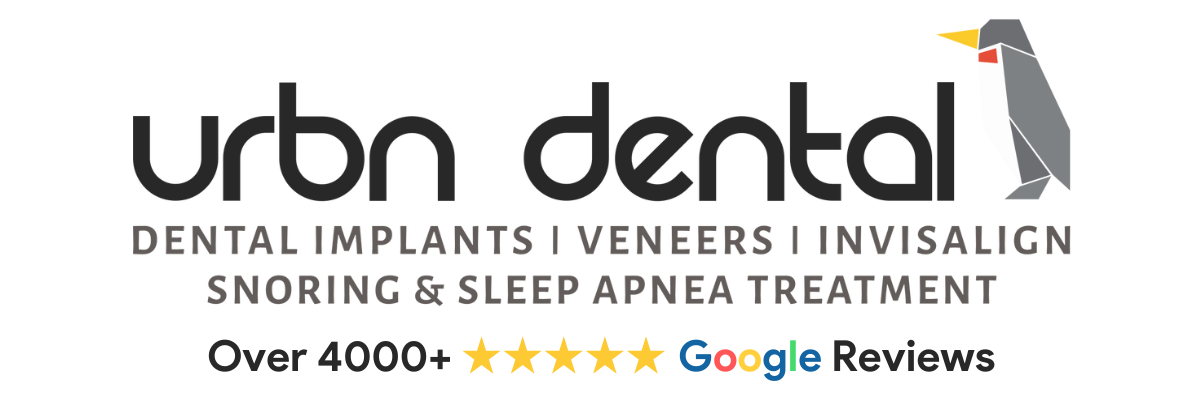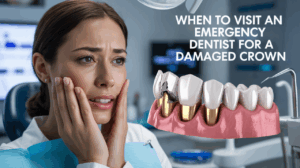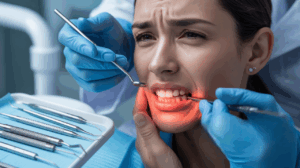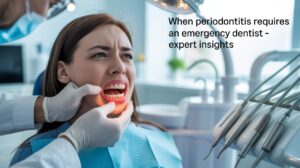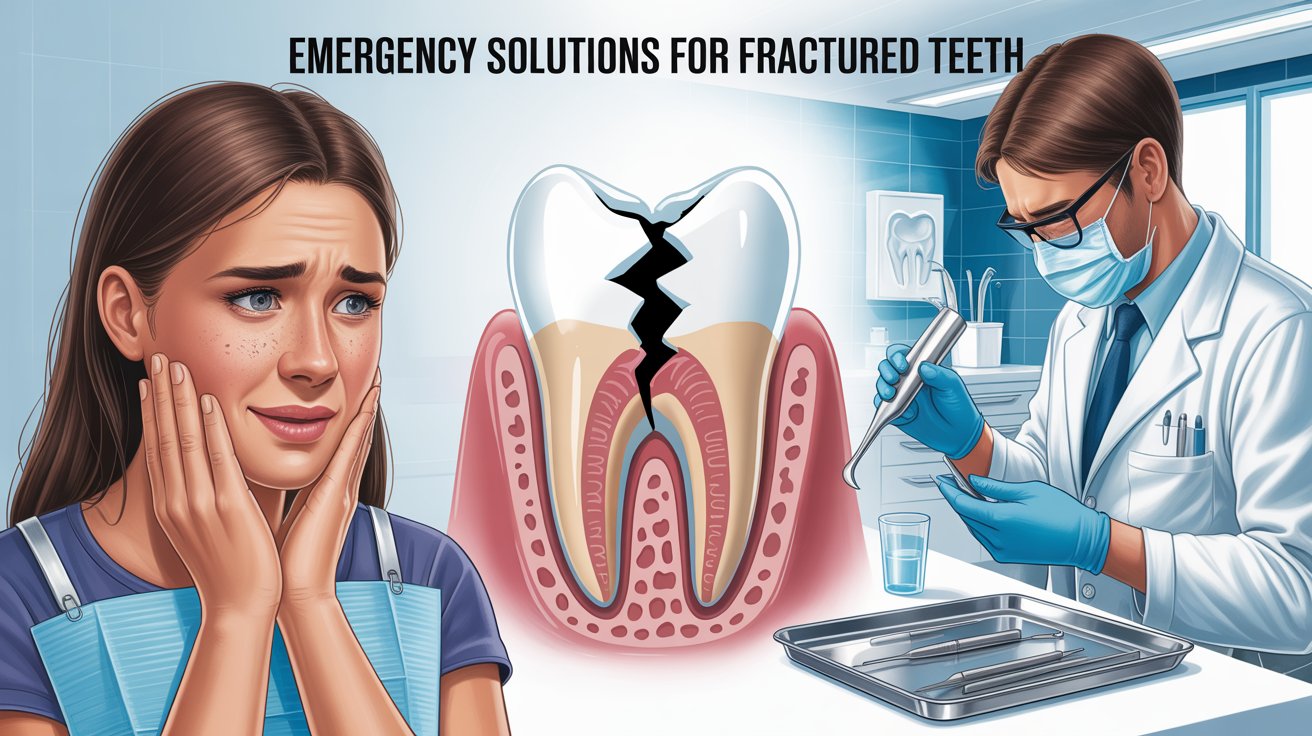
A cracked tooth may be unexpected. One minute, you have a bite; the next minute, you either have a sharp pain or a visible crack. Even when the tooth cracks due to biting a hard object or sustaining some trauma, it’s often best to have it evaluated promptly by a dentist.
So, what are you supposed to do in such situations?
This blog suggests the actions you can take in the case of a fractured teeth emergency, and specifies the main symptoms of this emergency that you should look out for. In case you live in Houston, you can directly contact the Emergency Dentist in Houston, our clinic. Because it’s a clinic many patients in Houston choose for urgent dental care.
What is a Broken Tooth?
Fractured teeth do not always become painful immediately. The crack may be very small and difficult to see.
The most typical types of fractures are the following:
- Crazing lines: Small cracks on the enamel surface. These may not be painful.
- Cracked tooth: A deep crack that may affect the root. This primarily requires prompt professional care.
- Fractured cusp: A broken chewing section. It tends to occur around fillings.
- Split tooth: The crack runs downwards along the tooth.
- Vertical root fracture: It starts in the root and then travels upwards. This could be hard to notice until it becomes worse.
Searching for “emergency DDS near me”? Our experienced dentists can examine your tooth and discuss appropriate treatment options.
Actions You Should Take Right Away
In case you believe your tooth is damaged, here is what you can do:
- Clean your mouth with warm water to wash down the area.
- Place some ice cubes on your cheek in order to stop swelling.
- Do not chew on the hurt side.
- Save anything you can that may be broken and take it to our dentist.
- Use pain pills as directed on the label package, such as ibuprofen (don’t take aspirin, which thins the blood).
Note: This can be done only to alleviate the situation. For the actual treatment, it’s generally recommended to see a dentist.
When Should You See a Dentist?
A tiny crack may grow deeper and could lead to further dental concerns. If you delay, it may become more difficult to save the tooth.
Here’s when to seek help:
- You hurt when you bite or chew
- Your tooth reacts to hot or cold
- You spot damage or bleeding
- Swelling or pus appears around the gums
- You hear a “crack” while eating
Delaying treatment can make it harder to preserve your tooth.
It’s generally best to seek prompt care, such as our Emergency Dental Near Me services, to help reduce the risk of the damage worsening.
What Our Emergency Dentist in Houston Can Do
Here’s what to expect during a visit to our clinic:
1. Pain Relief First
Our dentist will ensure your comfort before proceeding with any treatment. They often apply numbing gels or local anesthetics.
2. Diagnosis
They’ll take an X-ray to assess the fracture’s severity. This helps them plan the next steps.
3. Treatment Options
Depending on the seriousness, the solution might include:
- Dental Bonding: Resin matching tooth color repairs minor chips.
- Crown Placement: Helps protect and restore function after a major crack.
- Root Canal Treatment: It may be recommended if the crack extends to the pulp or there are signs of infection.
- Extraction: In severe cases, dentists may need to remove the tooth.
- Temporary Fixes: When swelling occurs, dentists might perform a short-term repair and schedule a follow-up.
Our clinic is also open on Saturdays from 8 am to 2 pm, so finding an emergency dentist Houston is usually straightforward.
How Can You Tell If the Tooth Can Be Saved?
The outcome is dependent on a number of aspects, like the place and extent of the break. Depending on your specific situation, our dentist will determine whether the tooth can be repaired or may need to be removed.
So in brief:
- Small chips: These may interfere with the looks and are often treated with bonding.
- Medium cracks: As determined by your dentist, may require the use of crowns or fillings when they extend deep into the layers.
- Big breaks: These may require a root canal or extraction, depending on the dentist’s evaluation.
Book a consultation with our Broken Tooth Emergency Dentist and increase your chances of saving your tooth.
How to Stop Teeth from Breaking in the Future
After getting your cracked tooth fixed, you might ask yourself how to prevent it from happening again. While accidents can occur, here are some ways to reduce your risk:
- Don’t use your teeth to open packages.
- Wear a mouthguard when playing contact sports.
- Avoid chewing on ice, pens, or hard candy.
- See your dentist to identify any weak teeth.
- Use a nightguard to treat teeth grinding (bruxism) if necessary.
Preventing issues before they start protects your smile and helps you avoid the stress of future dental emergencies.
Final Thoughts
Fractured teeth can seem like a catastrophe, but quick emergency treatment can address it. Quick action is recommended regardless of whether the damage is minor or major.
You don’t have to endure discomfort — help may be just a call or click away, with our dentist for broken tooth emergencies.
FAQ’s
What should you do first after breaking a tooth?
Rinse your mouth with warm water, apply a cold pack to reduce swelling, and avoid chewing on the injured side. If possible, save any broken pieces and call an emergency dentist right away to get it examined and repaired.
Can a cracked tooth heal by itself?
A cracked tooth can’t repair itself. Even small fractures may worsen or become infected if left untreated. It's essential to get help from our emergency dentist for fractured teeth to prevent further damage and preserve the tooth.
Does fixing fractured teeth hurt?
Our dentists aim to keep you comfortable. They often begin by numbing the area, which makes procedures like bonding, crowns, or root canals almost painless. They'll provide you with guidelines to manage any discomfort as your tooth heals. Most patients experience relief after treatment.
